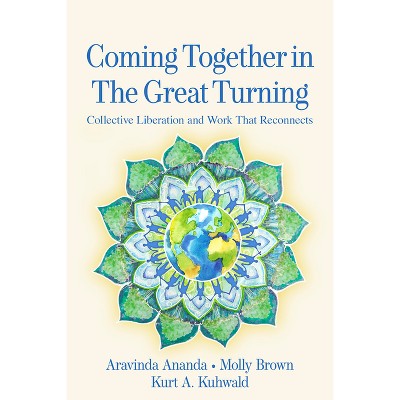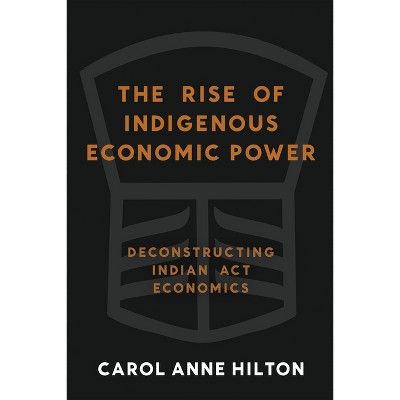Sponsored

Humanizing the Economy - by John Restakis (Paperback)
In Stock
Sponsored
About this item
Highlights
- The cooperative sector boasts 800 million people worldwide, and the UN has declared 2012 to be the year of the co-op.
- About the Author: John Restakis has been active in the co-op movement for 15 years.
- 288 Pages
- Business + Money Management, Environmental Economics
Description
About the Book
Humanizing the Economy demonstrates how cooperative models for economic and social development are showing the way toward a more equitable future.
Book Synopsis
The cooperative sector boasts 800 million people worldwide, and the UN has declared 2012 to be the year of the co-op. Humanizing the Economy demonstrates how co-operative models for economic and social development are showing the way toward a more equitable future.
Review Quotes
"The global co-operative movement could provide a genuine alternative to the ravages of predatory finance capitalism - if only it started acting like a movement! This book makes the case, connecting the dots among far-flung sites of co-operation and resistance, tracing the outlines of a humane alternative to the deadly business of business as usual.
- Avi Lewis, filmmaker, The Take
"The historical and contemporary yearning and struggle to incarnate economic democracy is theoretically and practically depicted in this lucid work. The author engages the reader in concrete experiences from across the globe, and one cannot help but come away more informed and inspired by the diverse challenges that people have overcome by organizing their economic affairs through co-operatives. Researchers, activists, practitioners, policy makers and students across a wide range of disciplines, especially economics and business, need the tonic and the analysis present in this welcome volume. Democracy is being advanced in exciting ways and we need to get on with the job of scaling up its role where we live and work across the globe."
- Michael Lewis, Executive Director, Canadian Centre for Community Renewal Lead Investigator, British Columbia-Alberta Social Economy Research Alliance
"The culmination of fifteen years of research, both at the theoretical and the empirical level, this book brilliantly speaks in favour of co-operatives, today a much-neglected economic institution. Moving from the consideration that market institutions induce desirable and undesirable social traits in people, the author defends the thesis that society can no longer exonerate itself from the duty of considering the effects of different economic systems on human character. Whence the title of the book. Humanizing the Economy discusses in a critical way both the possibilities and the challenges that the movement for economic democracy is facing in the age of globalization and the third industrial revolution. Restakis's well written, jargon-free book should be read by anyone seriously interested in the future of our market systems."
- Stefano Zamagni, Prof. of Economics, University of Bologna and Johns Hopkins University, Bologna Center for Civil Economy
"In the hyper-charged conflict between the global economy and global justice, John Restakis makes the case that ordinary people can take direct economic action to meet their own needs. He mixes history, ideas, and present-day struggles in an account that is personal, passionate, and informed."
- Brett Fairbairn, Provost, Professor of History, University of Saskatchewan
About the Author
John Restakis has been active in the co-op movement for 15 years. He is the Executive Director of the BC Co-operative Association and has been a consultant for co-op development projects in Africa and Asia. A pioneering researcher into international co-operative economies, he writes and lectures on economic democracy and the role of co-operatives in humanizing economies.
Shipping details
Return details
Trending Non-Fiction

















